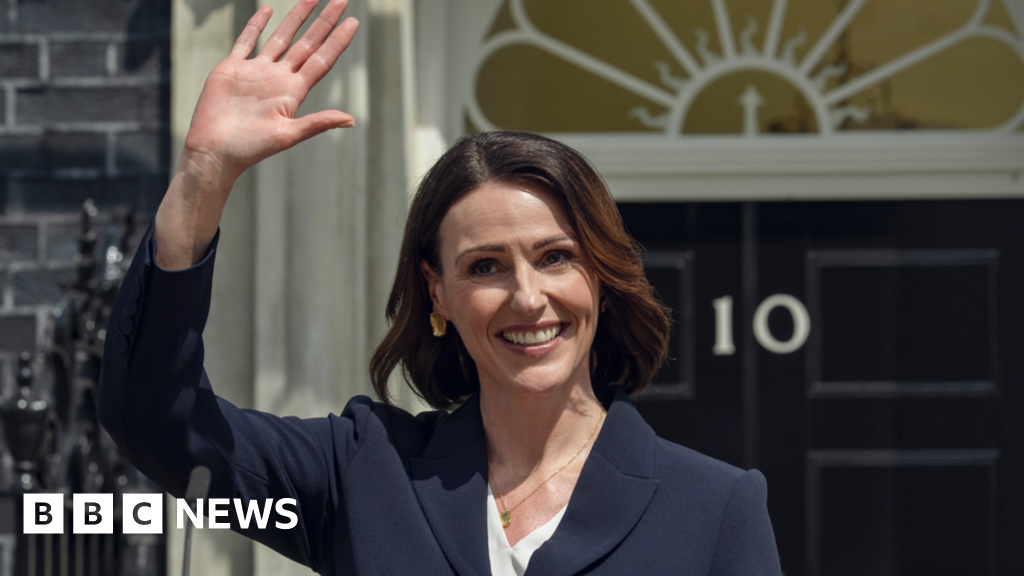Suranne Jones: Playing the prime minister changes your perception of politics

```html Suranne Jones on Playing a Prime Minister: Netflix's 'Hostage' Explores Power and Politics
Suranne Jones, known for her compelling portrayals of women under pressure in series like "Doctor Foster" and "Vigil," takes on a new challenge in Netflix's political thriller, "Hostage." In the series, Jones plays Abigail Dalton, the British Prime Minister whose husband is kidnapped, forcing her into a precarious alliance with the French President, Vivienne Toussaint, played by Julie Delpy.
A Political Thriller, But Not a Political Statement?
"Hostage" delves into themes of immigration, healthcare funding, and public trust, prompting viewers to draw parallels to current events. However, both Jones and Delpy emphasize that the show aims to be a thrilling story set against a political backdrop, rather than a direct commentary on contemporary politics.
"We're entertaining and we're in the political world, but it's in no way a reflection of the world we live in," Jones told the BBC. She added that directly linking the show to current events would be "inappropriate" given the complexities of today's political landscape.
Delpy echoed this sentiment, stating, "Things change every day. It's impossible to be in the political moment because tomorrow is something else."
Finding the Balance: Realism vs. Fiction
Matt Charman, the show's writer, acknowledges the inherent connection to the real world. "It's impossible to write a show that exists in the climate we live in that doesn't end up feeling that it's in dialogue with it," he explained. He hopes the show can exist "in its own oxygen," despite these connections.
Women in Power: A Deliberate Choice
Charman deliberately chose to feature two female world leaders in prominent roles. He saw it as a creative and political opportunity to explore the unique challenges and double standards women in power face. "What was exciting was the idea of women in power and how we explore that," he said.
Jones added that she enjoyed exploring "how these two women have to dance around each other." She noted the dynamic shift when female politicians interact, especially considering they are often accustomed to dealing primarily with men.
Dr. Sarah Williams, a political science professor at the London School of Economics, commented on the significance of portraying women in these roles. "Historically, political thrillers have been dominated by male figures. Seeing women navigate the complex world of international politics in 'Hostage' offers a refreshing and potentially empowering perspective for viewers," she stated. "However, it's crucial that these portrayals move beyond stereotypes and offer nuanced representations of female leadership."
Challenging Stereotypes
Delpy emphasized that they actively avoided perpetuating female politician stereotypes. She appreciated that both characters share a desire for change and entered office with hope.
Immersion and Research: Understanding the Cost of Power
Jones, who also served as an executive producer, immersed herself in political life to convincingly portray Dalton. She visited the House of Commons, spoke with the Speaker of the House, and consumed various resources to understand the realities of political life.
"I'm a bit of a geek when it comes to research," she admitted. "I was fascinated by not emulating anyone but by understanding a life I knew nothing about. And it's the cost of being in a powerful position in that way that really struck me."
Inspiration and Confidentiality
Charman revealed that Dalton and Toussaint were inspired by real-life politicians, but he declined to disclose their identities. He mentioned that Jones had access to former prime ministers who shared their experiences in office and the pressures their families faced, under the condition of confidentiality.
Professor David Miller, a media studies expert at King's College London, noted that the trend of actors immersing themselves in research for political roles is becoming increasingly common. "This level of dedication adds a layer of authenticity to the performances, making the characters more believable and relatable to audiences," he explained. "However, it also raises questions about the potential for bias or misrepresentation if the research is not conducted with objectivity and critical awareness."
Ideals vs. Reality: Can Good People Thrive in Politics?
The show raises questions about whether politicians can maintain their ideals once in office. While Jones remains uncertain, Charman expresses optimism. He wanted to explore how "decent people in politics who are fundamentally good but get pushed around" navigate the system. He believes it's "tough to keep your morals" but not "inevitable" that people abandon their ideals.
Delpy offered a more pessimistic view, suggesting that moderate views are often lost in the noise of extreme opinions, making it difficult for reasonable politicians to be heard.
Ultimately, "Hostage" explores "what it takes to be a good person in a system that doesn't always reward good people," according to Charman. ```
Originally sourced from: BBC Entertainment
